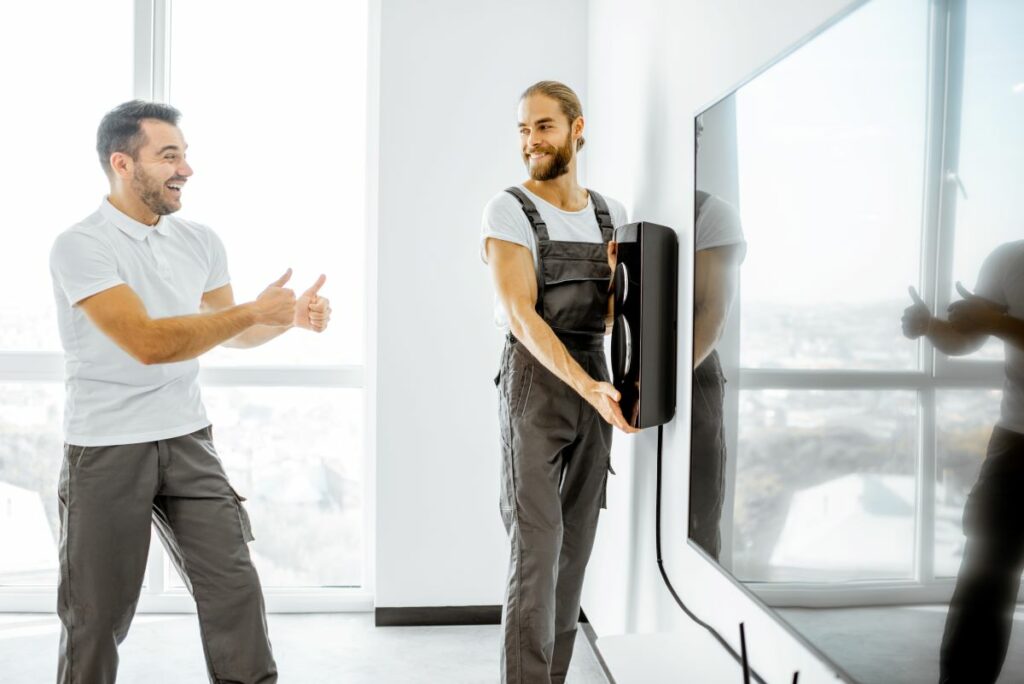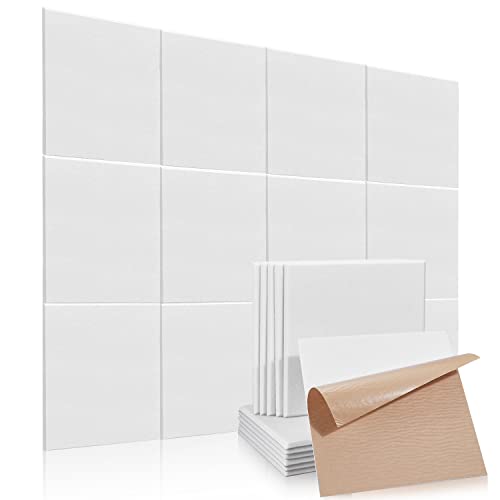the essentials in brief
Go to your TV's audio menu and adjust the dialogue options. On the causes of poor TV speech intelligibility...
Optimize audio settings, use external sound solutions or position the TV correctly. Discover more solutions...
There are no transmitters that are specifically designed for clear voice output.
Luckily there are many ways that improve TV speech intelligibility. Because sometimes it can be quite annoying when you watch your favorite movie or show and barely understand the dialogues. A common problem for which you are certainly looking for a solution.
In this blog post, we take a close look at the topic and show you how you can hear every word clearly in the future.
Contents
Causes of poor speech intelligibility

The ambiguity of dialogue on television can be influenced by a number of factors. One reason could be the poor sound quality of the transmission itself be. Sometimes it's not the equipment in our homes, but the production or transmission of the broadcast that accounts for the slur Klang responsible for. That's because at the Transmission or compression of audio files sometimes details that are crucial for clear speech reproduction can be lost.
Another factor that is often overlooked is the placement of the TV in the room. The position and angle at which the television is placed can have a major impact on how the sound is projected into the room. A TV set too high or too low, or a TV close to other large pieces of furniture, can absorb sound or reflect it in unexpected ways, resulting in poorer speech intelligibility.
Tip: Weather conditions can affect transmission quality. Check to see if bad weather is affecting satellite or cable transmissions, especially if the problem occurs suddenly.
Auch the settings of the TV itself must be taken into account. If the TV is not properly calibrated or certain audio settings are not optimal, this can affect the clarity and quality of the sound. Often we are unaware of and don't take full advantage of the many audio options that modern televisions offer, which in turn can impact the listening experience.
Check and improve TV speech intelligibility
Checking and improving a TV's speech intelligibility can mean the difference between an average viewing experience and an excellent one. But how exactly do you go about doing this?
First you should make sure that the Basics are fine. That means it no obvious physical problems there, such as B. defective Loudspeakers or loose cable connections.
A good way to test speech intelligibility is to Try different shows or channels. If you find that the voice quality is only poor on certain programs, the problem may be with the program itself and not with your TV.
Did you know that?
Televisions in the 1960s often only had a single, small mono speaker. The challenge was to achieve acceptable speech intelligibility despite the technical limitations. This has become evident in today's high-tech flat-screen televisions, which often have several Loudspeakers have changed significantly. However, despite these technological advances, speech intelligibility can still be a problem!
For effective verification, you can also a test tone or calibrationDVD use. These contain special audio tracks that you can use to test and calibrate your TV's audio performance.
After verification, it's time for improvements. You can with them TV audio settings begin. Many modern televisions offer special speech or dialogue settings that improve the clarity and clarity of the spoken word. Just enabling or adjusting these settings can make a big difference.
Should you the built-in ones Loudspeakers your television are not enough, external audio options such as soundbars or home theater systems could be a good investment. These usually offer better sound quality and more adjustment options than the standard TV speakers.
The acoustics of the room also plays an important role in speech intelligibility. A room-filling carpet, curtains or special sound-absorbing panels can help room acoustics and thus improve speech intelligibility.
The right positioning makes the difference

The placement of the television and the audio equipment that goes with it is often underestimated. It has a decisive influence on how we perceive the sound. Proper TV and audio placement can mean the difference between muffled, confusing dialogue and crystal clear speech.
- Centrality is key: The television should ideally be in the middle of the room so that it can be seen and heard from everywhere. A central positioning ensures that the sound is evenly distributed in the room.
- Note the altitude: The Loudspeakers of the TV (or an external soundbar) should be at about ear level if you are watching TV while sitting. This allows the sound to travel directly to the listeners without being blocked by furniture or other obstacles.
- Avoid corners and niches: If a television or Loudspeakers If you are pushed into a corner or niche, the sound can become “trapped” and sound unnatural. This can also cause the bass to be over-emphasized, which in turn can affect speech intelligibility.
Note: The ideal distance and angle from the TV can be subjective. What is perfect for one person may not work for another.
- Consider the distances: There should be enough space between the TV and other large objects or walls. This prevents the sound from being reflected or absorbed too much, which can affect clarity.
- Avoid reverberant surfaces: Rooms with many windows, tiles or wooden floors can reflect sound, resulting in an echo effect. Adding carpet, curtains, or other sound-absorbing materials can minimize this effect.
- A look at external Loudspeakers: The placement of external ones is equally important Loudspeakers or a home theater system. A common tip is to Loudspeakers in the “Golden Triangle”, with the two front speakers and the listener forming the corners of the triangle.
Consider external solutions
Sometimes the internal ones are enough Loudspeakers of a TV, no matter how good they are, are simply not enough to deliver the desired clarity and depth of sound. There are many external solutions to improve the sound experience.
- Soundbars: One of the most popular and easiest ways to improve TV audio is to get a soundbar. Slim but powerful devices that can be placed directly under or next to the TV and often offer significantly better sound quality than built-in TV speakers. Some models even come with subwoofers for deeper, more powerful bass.
- home theater systems: For those looking for a truly immersive audio experience, a complete home theater system may be the solution. This setup usually includes several Loudspeakers, which are distributed throughout the room, providing a surround sound experience. Although this may involve a larger investment, it offers a cinema experience in your own four walls.
Tip: Before investing in expensive equipment, make sure your current system is compatible with the desired upgrades to avoid unexpected costs or installation problems.
- Drahtlose Kopfhorer: If you want privacy without disturbing others in the household, wireless headphones could be the answer. There are many models specifically designed for TV that offer clear audio quality without having to worry about cables.
- External DACs and amplifier: A digital-to-analog converter (DAC) can improve the audio quality by converting the digital signal to analog. Together with an amplifier, it can increase the overall audio performance and provide a clearer and more detailed sound.
- acoustic panels: Even if they are not directly connected to the TV, sound-absorbing acoustic panels can help to improve the spatial sound. By reflecting and absorbing sound, they help minimize echo effects and increase overall speech intelligibility.
The sonorous end
The Improve TV speech intelligibility is not rocket science. With the right settings, good positioning and, if necessary, some external devices, you can significantly enhance your listening experience. Try some of these tips and enjoy your favorite shows in crystal clear quality!


![TELEFUNKEN XH24N550M 24 Inch TV (HD Ready, Triple Tuner) Black [2023]](https://m.media-amazon.com/images/I/41Ic2nj+5EL.jpg)
